
by Gideon Marcus
Sputnik all over again?
Last week, the Soviets produced their latest space spectacular, potentially leaving America in the dust again. Zond 5, launched September 14, was sent around the moon, returning safely to Earth on the 22nd.
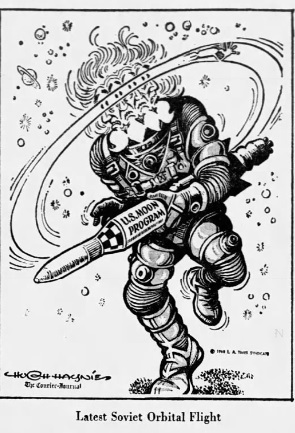
It's tempting to say, "What's the big deal," right? We've sent probes to the moon, too, and the Russkies have orbited lunar satellites and soft-landed spacecraft. What's special about Zond? Well, it's suspected that "Zond", a monicker usually reserved for interplanetary spacecraft, is really a lunar-adapted Soyuz. That means the Communists have completed a successful, robotic dry run for a human mission to the moon. We haven't even launched our first manned Apollo yet!
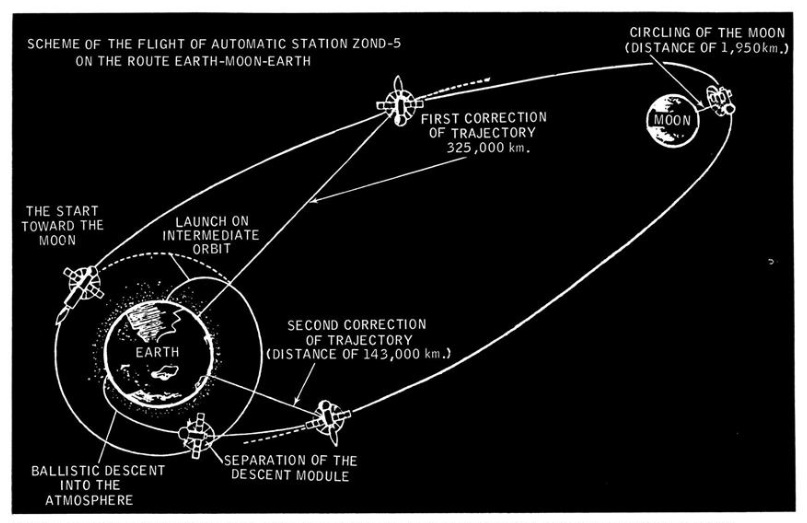
So we're in something of a race. Apollo 7 will go up in a couple of weeks, testing the spacecraft for an endurance run in Earth orbit. Apollo 8 is due to be a circumlunar shot, to be launched near the end of the year. That's the one to beat: if the Soviets make that journey before us, that'll be a feather in their cap.
That said, while our program was delayed 20 months due to the tragedy of Apollo 1 last year, the Soviet lunar program has undergone some setbacks, too. Most notably, their Saturn equivalent appears to be having teething troubles. While they might be able to send a Soyuz around the moon with their current rockets, landing cosmonauts will require a beefier launch system. Our Saturn is already man-rated.
If I were a betting man, I'd give the odds of the Soviets beating us around the moon at around 50/50. But as for landing on the moon, which is still planned for some time next year, I think we're still favored to win that one.
The medicine
This month's issue of Analog starts off extremely well. Savor the taste of the opening piece, as it's what will sustain you through the rest…
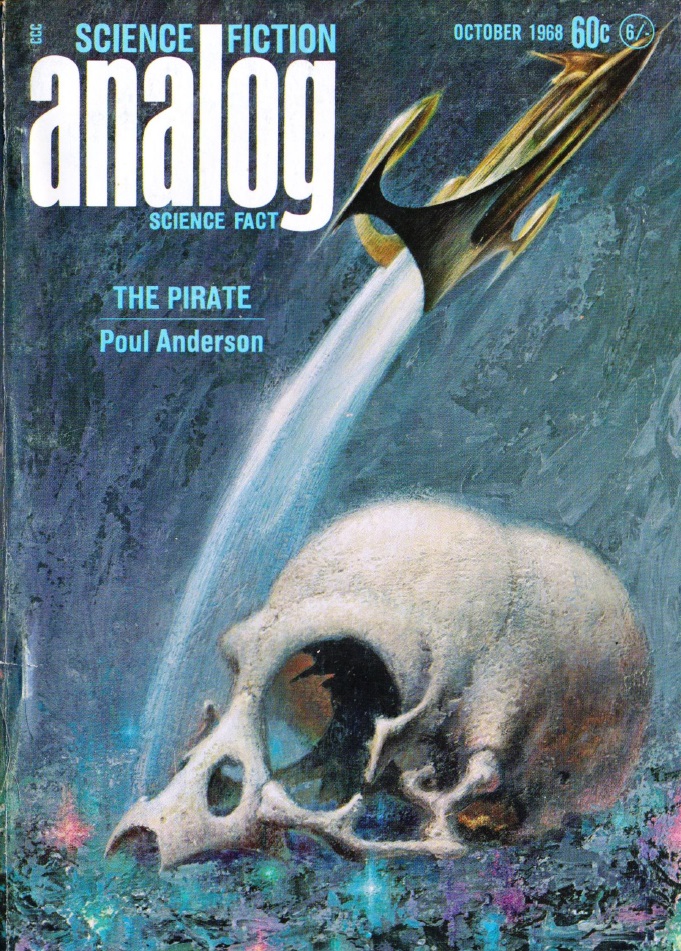
by Kelly Freas
The Pirate, by Poul Anderson
Trevelyan is the agent of an arcane, galaxy-wide service. Most of the such agents are employed for scouting, search and rescue, and mediation services. This time, Trevelyan is on a mission of crime prevention. His suspect: Murdoch Juan and his partner, Faustina. Ostensibly, they aim to set up pre-made colonies on the marginal world of Good Luck, offering transport and homes to settlers at a bargain. Trevelyan knows such endeavors are never profitable, and he suspects a shady angle.
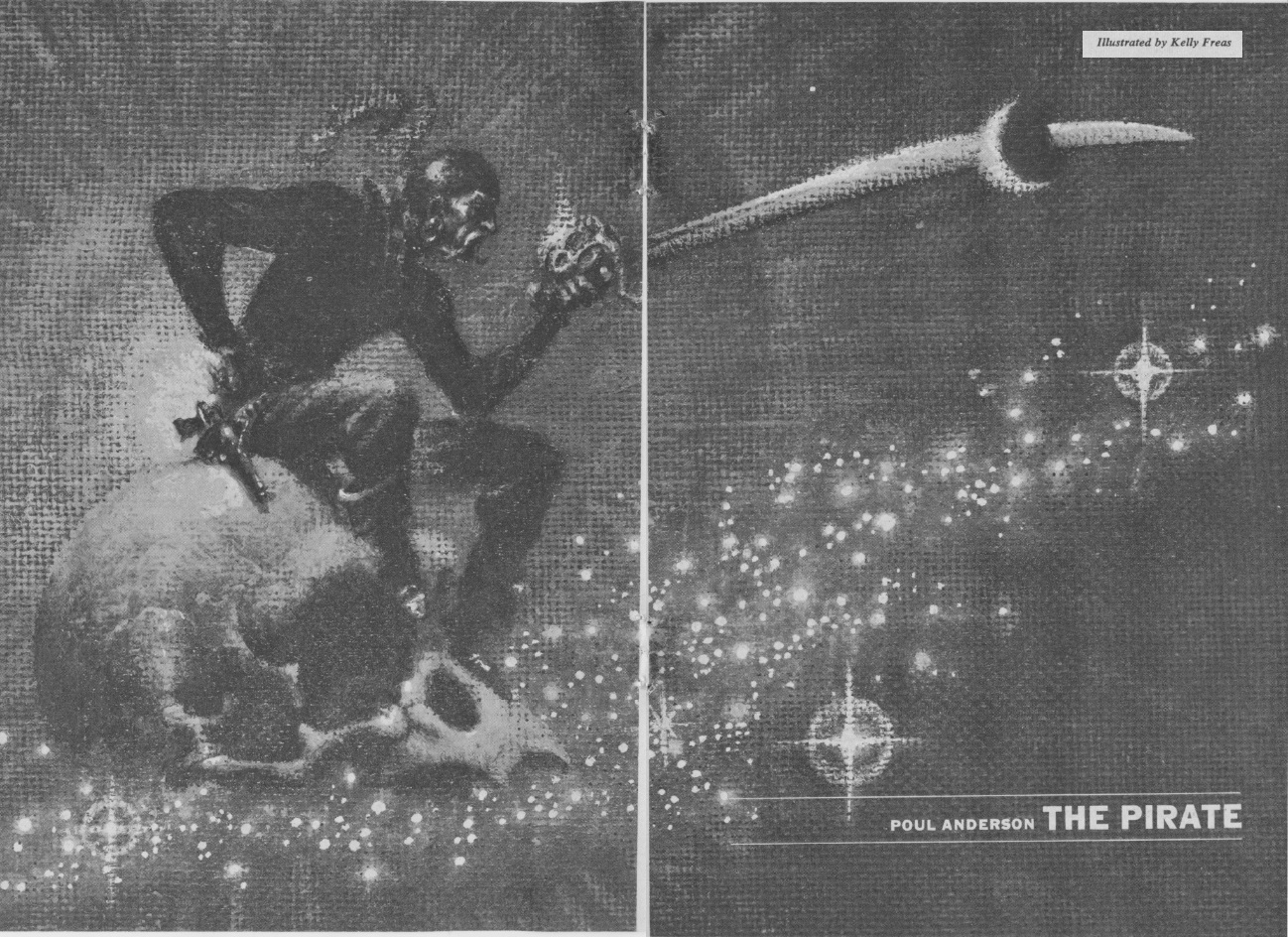
by Kelly Freas
Such concerns are confirmed when he and his alien shipmate, Smokesmith, discover Murdoch's true target: a once-inhabited world, seared with abated radiation, abounding in empty cities ripe for occupation. But is that what the dead race would have wanted?
Poul Anderson's writing ranges from turgid to sublime. This piece is much closer to the latter end of the scale, and it benefits from lacking the author's typical linguistic tics. In addition to being a good read and an excellent depiction of a true alien race, I appreciate the moral questions raised and the conservationist attitude expressed. This would be good required reading for any apprentice building contractor or would-be Schliemann.
Five stars.
Mission of Ignorance, by Christopher Anvil
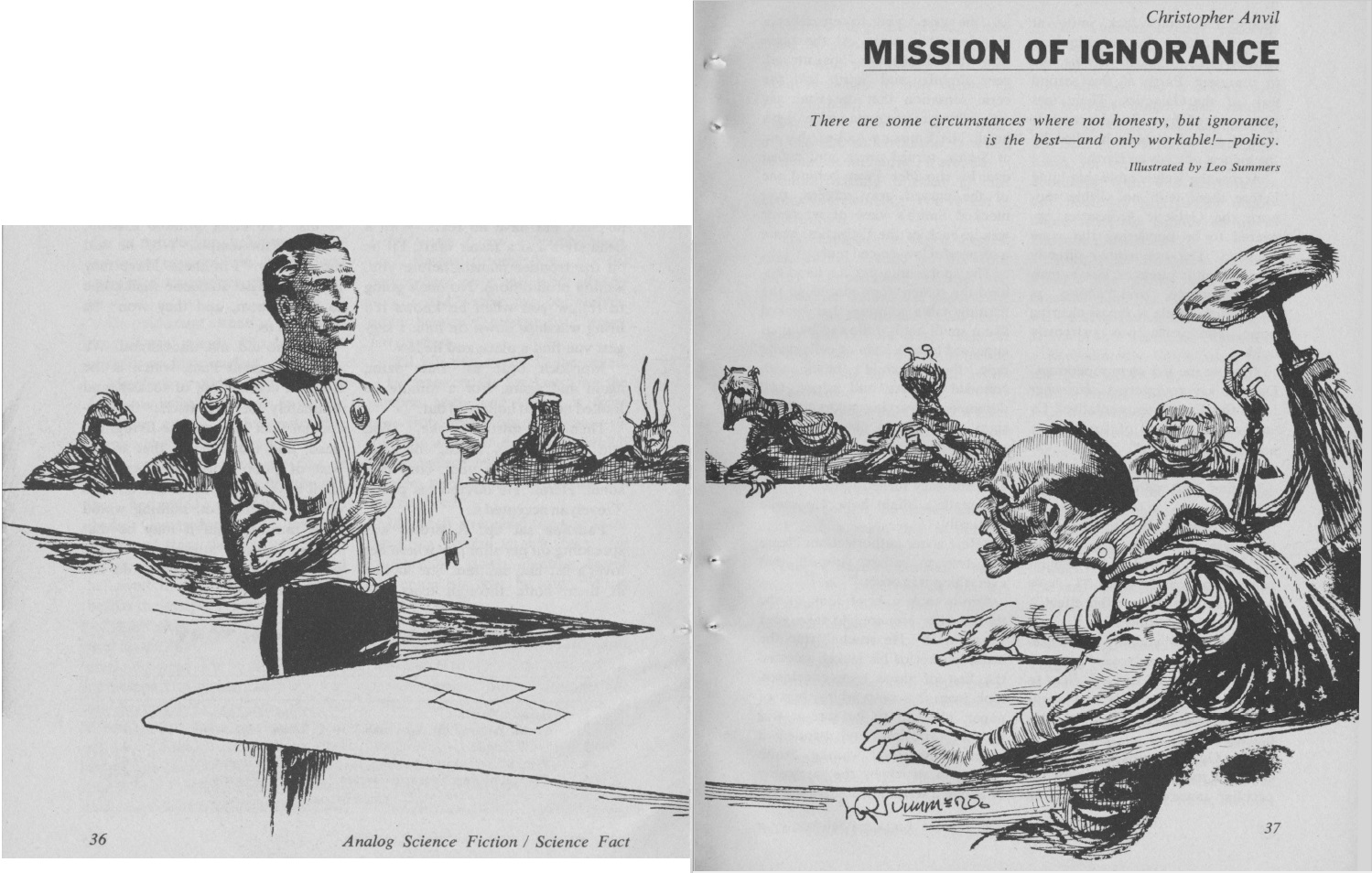
by Leo Summers
The galactic aliens have returned. Last time, they brought three gifts to revolutionize our food production, our computers, and our birth control—and leave us completely at their mercy. This time, Earth is being a bit more circumspect. Rather than accepting the ambassadors with open arms, a buck 2nd Lieutenant is dispatched to treat with them—with absolutely no briefing at all, but with a set of instructions designed to terrify and befuddle the extraterrestrials.
I often joke that every Chris Anvil story begins with [Military rank] [Name] [present participle verb], and this is no exception. I also, less jokingly, note that Chris Anvil's stories for Analog tend to be smug, stupid affairs. Thus, I was surprised to find I didn't hate this piece. It is somewhat smug, and the latter half is all explanation, but the premise is kind of interesting.
Right on the 2/3 border. I'll be generous and say three stars.
Taking the Lid Off, by William T. Powers
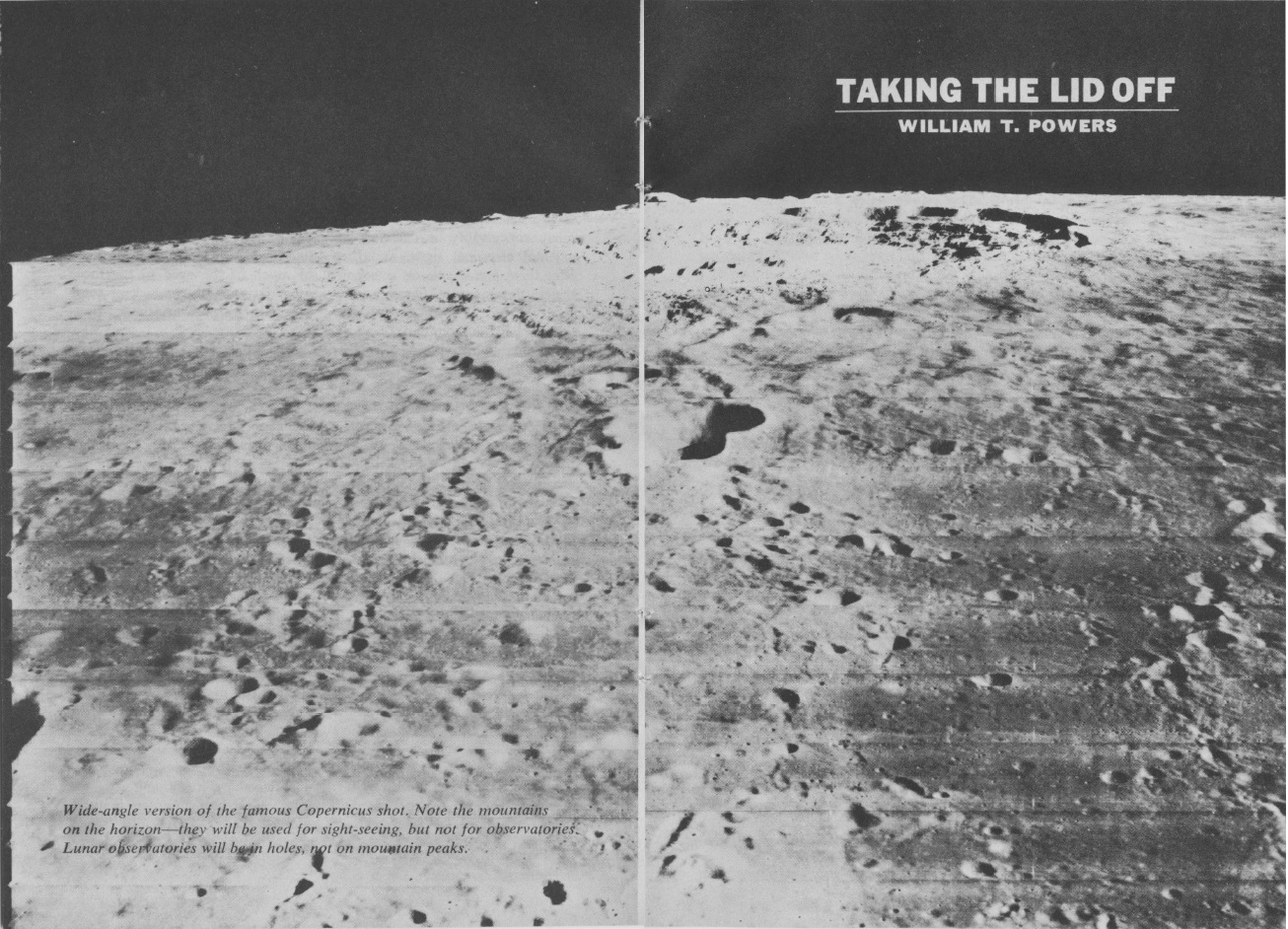
The "lid" in this science article refers to Earth's atmosphere, which prevents us from seeing the universe in most of the interesting wavelengths like X-ray and infrared. Powers, who wrote a terrific article on measuring charged particles last year, offers up a less impressive, but serviceable piece on lunar and orbital telescopes. It's just a bit less coherent than his last article, and with fewer revelations, although I did appreciate his explanation of using gravity gradients to stabilize satellites.
Three stars.
The Steiger Effect, by Betsy Curtis
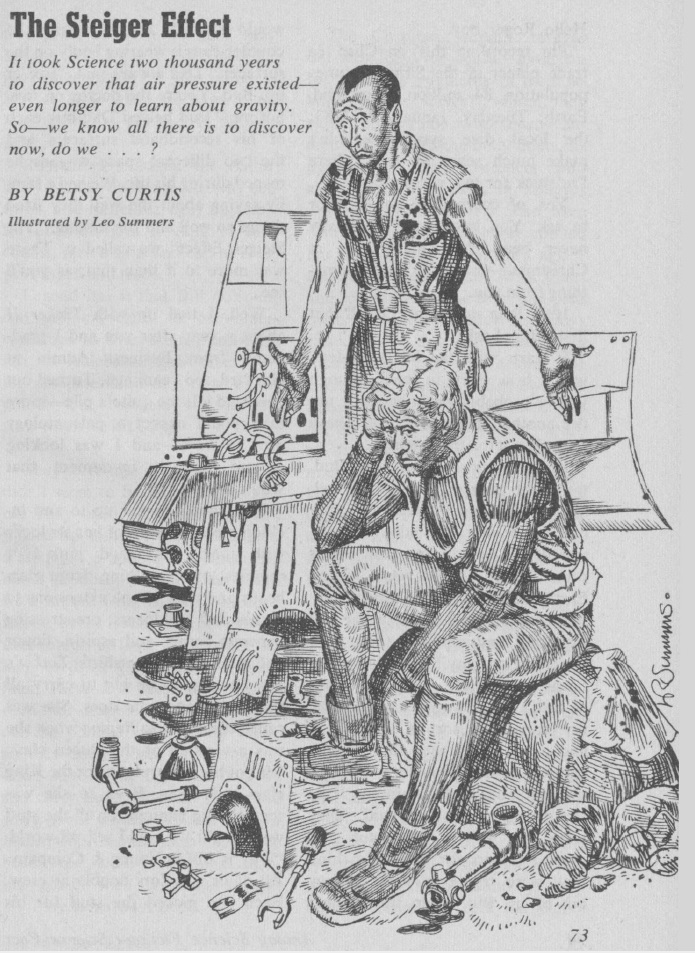
by Leo Summers
Human merchants arrive at a planet that views internal combustion as a kind of witchcraft. Nevertheless, they buy our engines when they are demonstrated to work. But the engines all mysteriously conk out when humans reach a certain distance away. Turns out they—and all internal combustion engines, everywhere—run on psi energy, and always have. 'Humans secretly have psi powers and don't know it' certainly sounds like a plot tailor-made for Campbell, doesn't it?
Never mind that the premise makes no sense; the division of the (otherwise completely humanoid) alien society into "Men" (those who do with their minds) and "Boys" (those who do with their brawn) hews too close to a metaphor of antebellum days in the American South for comfort.
One star.
Underground, by Lawrence A. Perkins
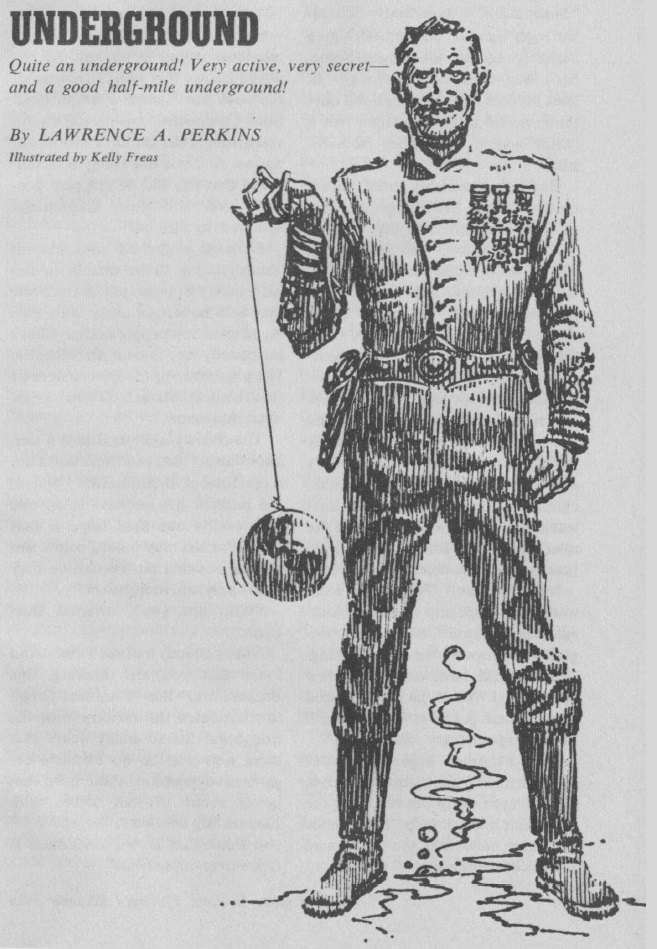
by Kelly Freas
A senator is kidnapped by a Latin American insurgency that plans to harness earthquakes to topple their oppressive dictator [a plot reminiscent of the Doctor Who episode "Enemy of the World" -Ed].
This piece reads like one of those Ted Thomas mini science articles from F&SF turned into a story, except there's no real story—just a lot of show and tell.
Two stars.
The Tuvela (Part 2 of 2), by James H. Schmitz
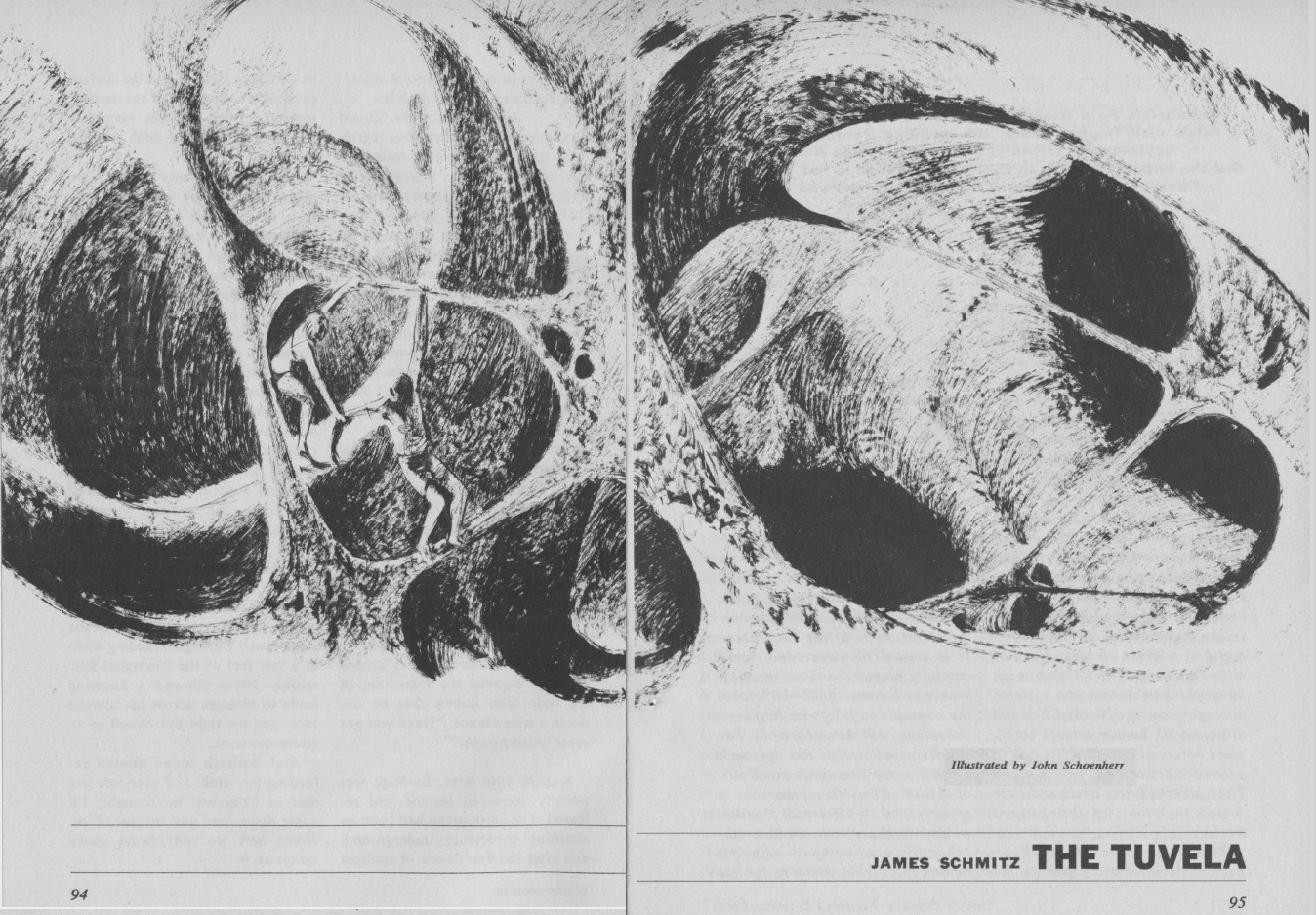
by John Schoenherr
Last installment, we learned that the colony of Nandy-Cline was about to be invaded by the rapacious Parahuans. The only thing holding them back was the concern that humanity was led by a shadow cabal of "Tuvela", a subrace of genetic supermen. Now, the security of the world lies in the hands of the youthful Dr. Nile Etland, who must convince the Parahuan that she is one of the mythical Tuvela. Luckily, she has a quartet of sapient otters as wingmen…
This is a frustrating novel. The premise is excellent, and Schmitz is one of SF's few authors who lets women be heroes. What keeps this book at the three-star level for me is the lack of characterization. I have a vague idea of who Ticos Cay is, the two-hundred year old man who we meet as a prisoner of the Parahuan. I even kind of know the various Parahuan. But Etland is a cipher, utterly uninteresting as a person. She goes through her James Bond maneuvers with competence and a few jitters, but with precious little demonstration of a soul.
My nephew enjoyed this serial a lot. It is creative, and the biology of the world well realized. If only I could say the same for Nile Etland.
Three stars.
Doing the math
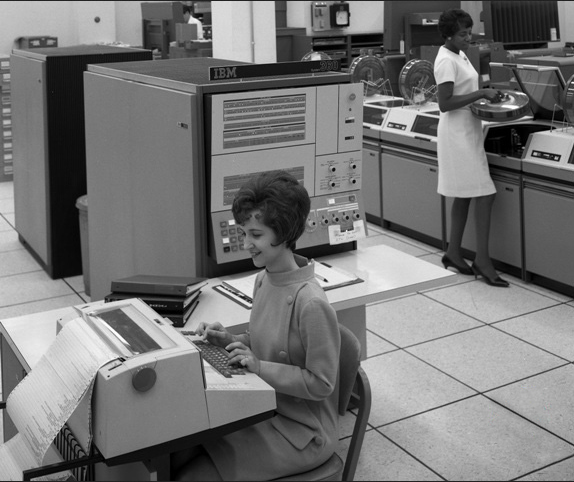
Thus ends the month with Analog clocking in at 2.9, just under the 3-star line. Ahead of it are The Farthest Reaches (3.4), Fantasy and Science Fiction (3.1) and IF (3.1). The pack below it is far below—Galaxy (2.4), Worlds of Fantasy (2.3), and Fantastic (2).
The worthy stuff would fill two magazines, which would be an impressive amount if it hadn't taken seven publications to produce it. Women penetrated the magazines pretty well this month, but their lack of pieces in Worlds of Fantasy and The Farthest Reaches brought the aggregate percentage down to 11%.
And so, with science fiction as with science fact, we find ourselves in a bit of a holding pattern, awaiting what's to come next month. But whether it's the Soviets or the Americans, Campbell or Ferman, someone will entertain us.
And that's worth being ready for!

[Stop Press: Mark just got his reviews of this month's New Worlds to me. It's too late to run an article, so we'll be doubling up next month. For the sake of statistics, however, the magazine raises the amount of worthy material slightly, and it reduces feminine participation in SF magazine prose for October 1968 to 10%. Stay tuned…]

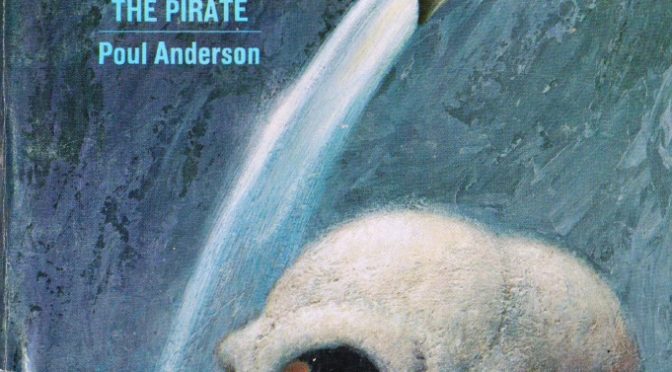

Sorry, I am afraid for me the Anderson didn't work for me. I just don't think even his better stuff for Campbell holds my attention.
The situation with the Zong 5 probe is interesting because it is always so hard to tell what is real with the Soviet programme and what is so much hot air. However, there were definitely more rumours flying around that Shepard might not beat the Cosmonauts into space throughout the whole of the Mercury programme, whilst the Apollo programme has not seen anything close.
Either way, will certainly make things interesting. If nothing else it will hopefully put a fire under the US congress to not do any more cuts to NASA's budget!
1969, American landing on the moon.
We differ slightly at either end of the magazine, but we're right in line through the rest of it.
"The Pirate" is very good, no argument there. I'm just not sure it quite crosses the 5-star line for me. I appreciated the strong philosophical point at the end, but it didn't stick with me, enough so that I had to go back and reread the last few pages to remind myself what it was. That's what holds it down for me, but it's a high 4, for sure.
"Mission of Ignorance" is, alas, probably about the best we can expect from Anvil anymore. I remember when he was quite promising, even when writing for Campbell. This one was awfully talky, and the premise (of the action; the motives of the aliens was interesting and reasonably well done) was weak. I think I come down on the less generous side of the line.
The science article was fine. Powers occasionally got lost in the weeds of his expertise, leaving the lay reader less than informed. The photographic examples of atmospheric blurring, for example, could have used a lot more explanation; as it was, they didn't real show me anything. His attempts at humor were also less than successful. But still a decently informative article.
"The Steiger Effect" was awful. I didn't even pick up on the Men and Boys thing, possibly because I was already so bored and disgusted with the story that I didn't think that deeply about it.
"Underground" was just silly.
I think I liked "The Tuvela" more than you did. Probably not four stars, but a higher three than you seem to give it. You have a point about Nile being a bit of a cipher, but I think a lot of her characterization was in the first part and so might be less clear in memory a month later. It's also possible that Schmitz has a weakness in characterization of his protagonists when writing from a third-person perspective. I can tell you a lot about Telzey Amberdon, but we spend all of her stories in her head. Some of his other third-person protagonists are just as vague. Of course, Nile also doesn't really have anybody to react to except the otters, which also makes it difficult to reveal much of her personality.
At least Kelly Freas makes the magazine worth looking at.